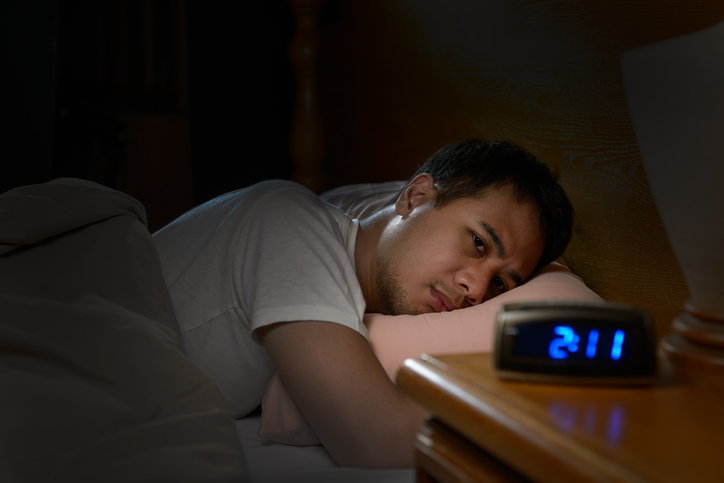By Dr. Meeta Singh, MD @athletesleepmd1 and Dr. Carla Edwards, MD @Edwards10Carla
The enforced societal restrictions over the past three months have left athletes feeling negative, unmotivated, emotionally detached from sport and feel as though they have lost direction—all of which impacts their overall mental health.
We both witnessed how athletes’ psychological experiences evolved during this period. Athletes with preexisting anxiety and insomnia need extra support now especially as these conditions serve as major risk factors for PTSD to develop. Disaster Psychology models predict common trajectories through significant life-changing events, and there is evidence that the psychological effects of quarantine can be detected months or years after the event has happened.2
A recent study published from Wuhan suggested that younger people, and those who spend excessive time focusing on the epidemic (≥ 3 hours per day), were at higher risk for mental illness.3 Many of our athletes fit that profile. Another study involving healthcare workers in Wuhan demonstrated that provision of social support was associated with better sleep quality and lower anxiety. Interventions such as these in this period are vital.4
As described in part 1 of this blog post, both pharmacotherapy and cognitive-behavioral therapy (CBT) are effective for the treatment of anxiety and insomnia. It is important to remember that best outcomes are obtained if both anxiety and insomnia symptoms are targeted.
Healthcare professionals generally agree that it is important to limit pharmacological interventions because of the chronic nature of both anxiety and insomnia and the limited data of the benefits of pharma. However, in severe cases of acute symptoms due to the conditions of this pandemic, short term use may be necessary. In such cases, agents that target both symptoms should be tried.
CBT for Anxiety and Insomnia
For anxiety, CBT aims to alter maladaptive emotional responses by changing the patient’s thoughts and/or behaviors using education, exposure, and cognitive techniques. 5
For Insomnia, CBT aims to increase the drive to sleep whilst eliminating any conditioned arousal to the bedroom and bedtime routine. Reduction of sleep-related catastrophic worry and concerns, as well as identifying and challenging pre-existing sleep-related dysfunctional attitudes and beliefs, are additional goals. 6
We recommend that athletes:
- Limit exposure to COVID-19 news
- Keep a regular night and wake-time schedule
- Create structure to each day i.e. get dressed, have regular meals, exercise, and get out into the sun when possible
- Schedule a brief (15-20 minute) time during day for reflection. Download your swirling thoughts by writing them down and organizing them
- Reconnect with an old hobby (or find a new one!)
- Schedule relaxation, meditation, yoga and mindfulness to reduce overall physiological arousal
- Adhere to “physical distancing,” but stay socially connected with technology
- Keep in regular touch with team members
- For insomnia symptoms in particular,
- Allow their sleep period to fit more with the natural circadian preference
- Avoid devices and tablets in the bedroom
- Make their bedroom quiet, dark, and cool
***
Dr Meeta Singh @athletesleepmd1 is a board certified psychiatrist and sleep medicine specialist at the Henry Ford Sleep Disorders Center based in Detroit, MI, and works with college and professional athletes on improving all aspects of sleep health with the aim of enhancing physical and mental performance, health, and quality of life. Her interests span managing sleep during times of intense training, hectic travel schedules, high expectations and high-profile environments. Email: msingh2@hfhs.org
Dr. Carla Edwards @Edwards10Carla is a sports psychiatrist and clinical professor of psychiatry at McMaster University in Ontario, Canada. She is the high performance mental health advisor and psychiatrist with Swimming Canada and Cycling Canada, and the Vice President and Outreach Chair for the International Society for Sports Psychiatry. Her clinical practice focuses on the assessment, treatment, and support of high performance athletes and their support team. Her interests span physical activity and mental health, lifestyle psychiatry, athlete mental health policy development, and medical education. Email: cedwards@synergysportmentalhealth.ca
References
- Brooks, S. K., Webster, R. K., Smith, L. E. et al. The psychological impact of quarantine and how to reduce it: rapid review of the evidence. Lancet, 2020, 395: 912-20.
- Zunin L. M. & Myers, D., (2000) Training Manual for Human Service Workers in Major Disasters. 2nd Ed. Washington, DC: Department of Health and Human Services, Available at http://www.mentalhealth.org/publications/allpubs/ADM90-538/tmsection1.asp
- Yeen Huang, Ning Zhao. Generalized anxiety disorder, depressive symptoms and sleep quality during COVID-19 epidemic in China: a web-based cross-sectional survey medRxiv 2020.02.19.20025395; doi: https://doi.org/10.1101/2020.02.19.20025395
- Xiao, H., Zhang, Y., Kong, D., Li, S. and Yang, N. The Effects of Social Support on Sleep Quality of Medical Staff Treating Patients with Coronavirus Disease 2019 (COVID-19) in January and February 2020 in China.
- Kaczkurkin AN, Foa EB. Cognitive-behavioral therapy for anxiety disorders: an update on the empirical evidence. Dialogues Clin Neurosci. 2015;17(3):337‐346.
- Ellis JG, Cushing T, Germain A. Treating Acute Insomnia: A Randomized Controlled Trial of a “Single-Shot” of Cognitive Behavioral Therapy for Insomnia. Sleep. 2015;38(6):971‐978. Published 2015 Jun 1. doi:10.5665/sleep.4752
